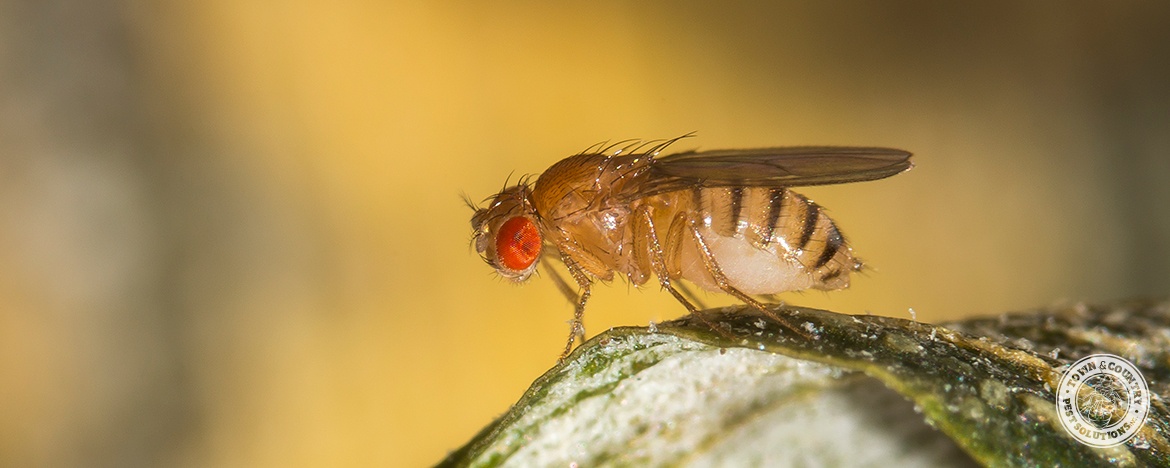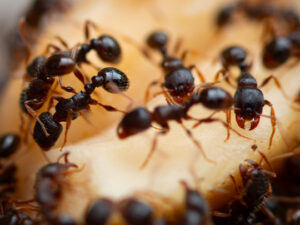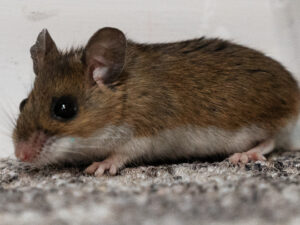
Pollenia rudis, or the cluster fly, as it is more commonly known, is one of the most common indoor fly pest species in upstate New York. Like many other winged insect pest species, cluster flies invade homes in large numbers during the fall in order to overwinter in warm conditions. These flies can be a major nuisance during the fall, but they often reemerge from their indoor hiding places come spring before making an effort to escape into the natural environment. Cluster flies are also known for emerging in homes during the winter season in response to unseasonably warm weather. When this occurs, the flies gather around windows in a fruitless effort to get back outside. Unfortunately, cluster flies are not the only fly pests that invade homes for the purpose of overwintering, as fruit flies and face flies are also common overwintering pests in upstate New York.
Most face flies and fruit flies die off during the winter season, but a small few manage to secure harborages within well concealed indoor areas for the duration of the winter season. These flies access the interior spaces within homes by flying through attic vents, crawl spaces, damaged window screens, the gaps around doorways, and through small crevices and other entry points on the exterior walls of homes. Fruit flies often gain access into homes by hitchhiking on store-bought fruit and they can reproduce in homes by laying eggs on rotting food sources within garbage bins, as well as food sources that have collected beneath appliances. Face flies lay eggs on manure, and homes located near farms and stables are particularly vulnerable to face fly infestations. Both fruit flies and face flies spread a variety of disease-causing microorganisms on human food and indoor surfaces. Face flies are particularly dangerous in this regard due to their habit of landing on mucous membranes in the eyes, mouth and nose where they feed on tears and other secretions. Face flies also land on open wounds in order to sop up blood, making disease transmission dangerously probable. Installing door sweeps, maintaining window screens, and sealing exterior entry points will help to prevent face flies and fruit flies from invading homes.
Have you ever been pestered by flies that repeatedly flew into your face?











